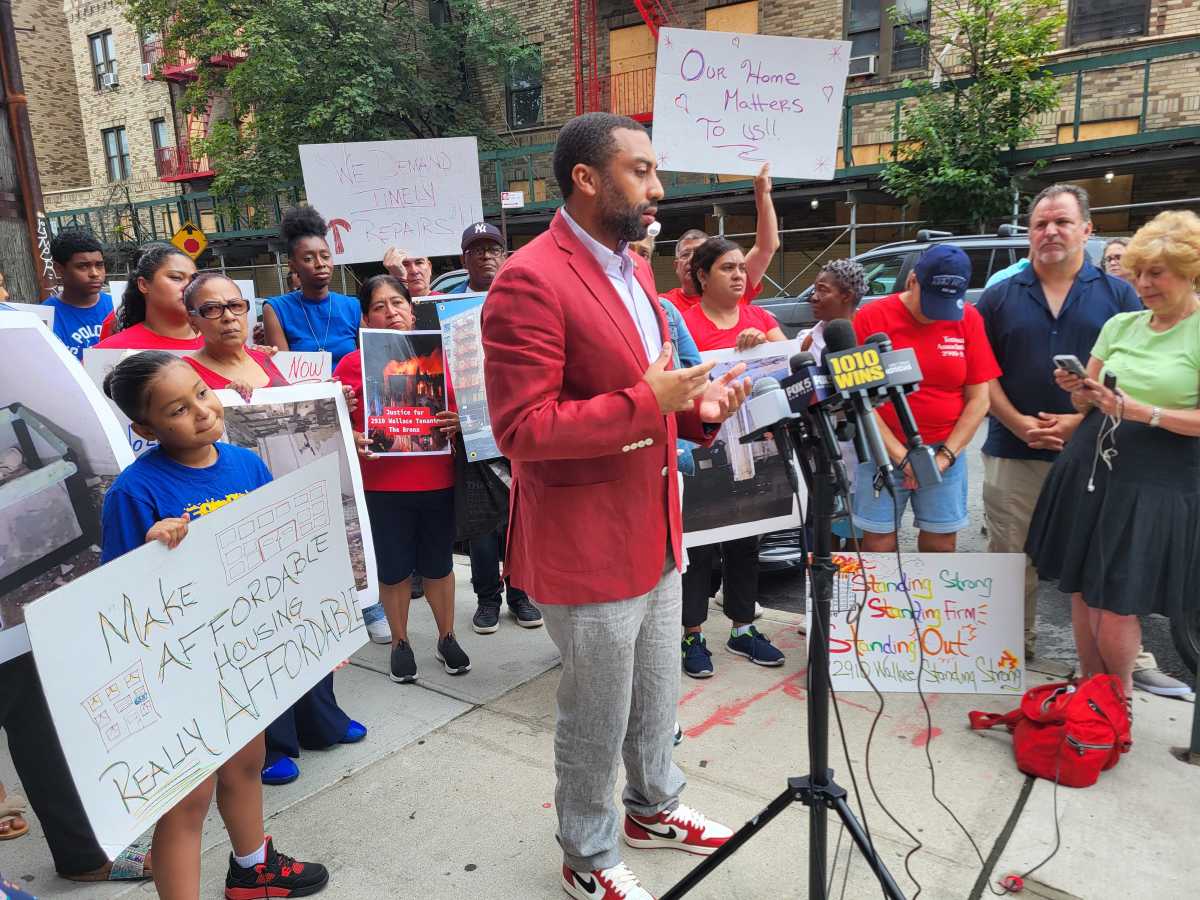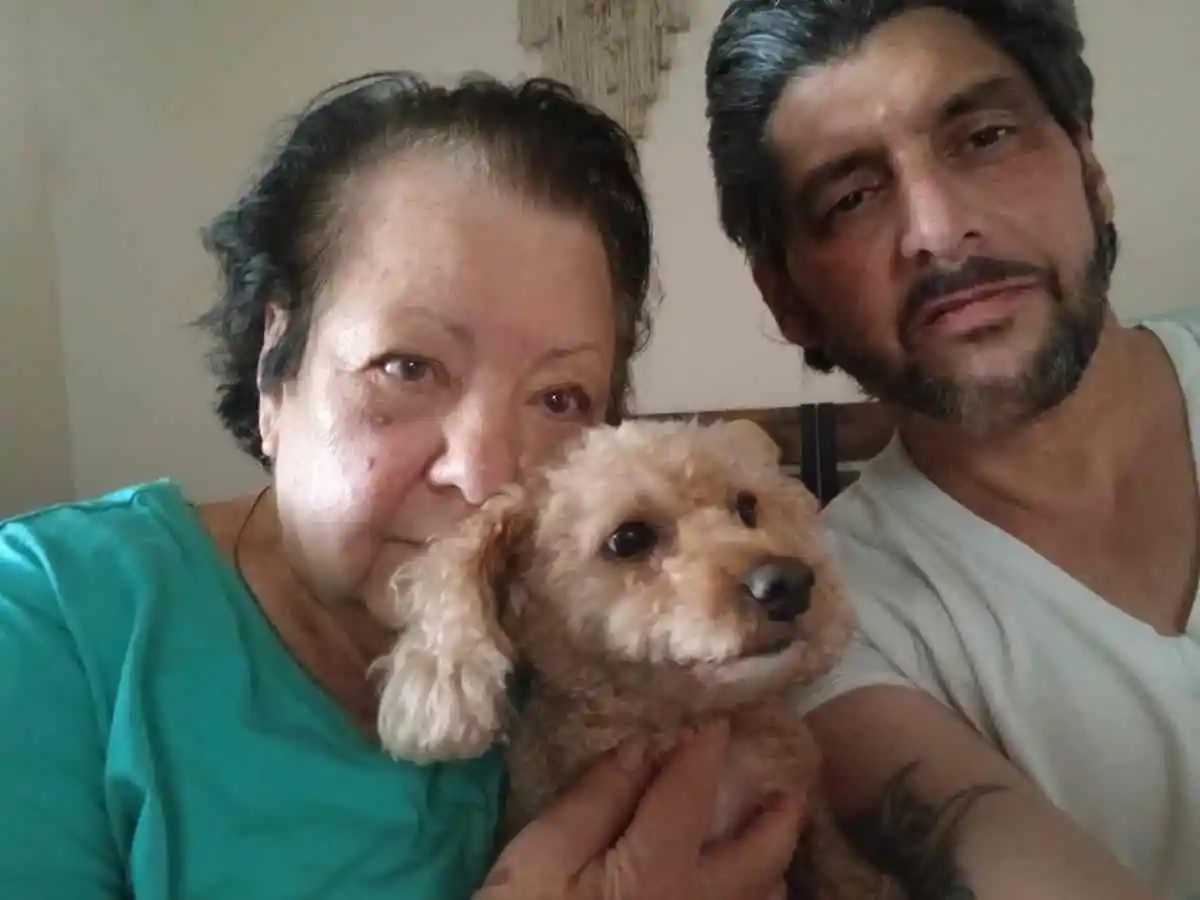Mayor Bill de Blasio and City Council Members Brad Lander (D-Park Slope), Rafael Espinal (D-East New York, Bushwick) and Inez Barron (D-East New York) proposed legislation yesterday to establish a three-year demonstration program to facilitate the creation and renovation of apartments in the basements and cellars of certain one- and two-family homes in East New York.
The City will allow for the creation of new apartments in this area through the modification of existing Housing Maintenance Code, Fire Code and Construction Code standards, coupled with existing allowances for home conversions and the allocation of funds to assist with these renovations. This innovative pilot program will provide safe and legal housing options to more New Yorkers.

“The City is using innovative strategies to unlock more affordable housing at every level – including the basement,” said de Blasio. “This program will increase the stock of affordable housing in East New York, provide additional income to homeowners, and ensure tenant safety. This administration will continue to utilize every tool we have to tackle affordability head on.”
Tenants in illegal basement and cellar apartments typically have no lease, limited rights, and live in substandard conditions. This bill would add to the city’s existing housing stock by allowing property owners to create safe and legal apartments in their buildings. The city will also use the pilot to identify and learn about how to overcome barriers that owners face when seeking to convert basement units.
Modifications of code standards include minimum ceiling heights and window sizes in basement and cellar spaces and strengthened requirements for emergency egress and fire safety. Each proposed modification to the code standards for this program took into account the obligation to preserve the health and safety for the occupants of these apartments. The changes will modify requirements in order to reduce costs and facilitate conversion of new residential units.
The city’s Department of Housing Preservation and Development (HPD) is looking to identify a Community Based Organization to administer the demonstration program on behalf of the city agency.
The financing program, which will provide low-interest financing to qualified homeowners to assist in the creation of habitable basement apartments, will launch later this year. HPD will fund the selected CBO to provide technical assistance, including working directly with homeowners to apply for and close on financing from the agency, helping them select an architect and contractor from a pre-qualified list, assisting in the temporary relocation of any tenants, and helping to monitor construction and lease up their unit upon completion of the renovations.
With assistance from the CBO, the owners will work directly with qualified contractors to renovate their basements in compliance with modified code standards. To qualify for the program, a homeowner must have an income at or below 165% of Area Median Income, and occupy the home as their primary residence.



The basement conversion pilot program was a commitment made under the East New York Neighborhood Plan, and is the result of a study conducted by a working group convened in October, 2016. This working group was comprised of administration officials, council officials including Espinal, community groups, residents and housing advocates. The Administration has invested $11.7 million in this three year program.
“Converting basement units into safe and legal housing is an important way to address New York City’s affordability crisis,” said Lander. “Together with advocates from the BASE (Basement Apartments Safe for Everyone) Coalition, including Chhaya CDC, Cypress Hills LDC, and the Pratt Center for Community Development, we’ve been pushing for years to bring underground units into the light. Props to Council Member Rafael Espinal and the de Blasio Administration for developing this thoughtful pilot program for East New York. I look forward to working with our partners to establish the pilot program, and then to learn the lessons we’ll need to expand the program to neighborhoods around the city.”
Espinal said the basement pilot program was a sticking point for the East New York Neighborhood Plan to pass.
“For the past three years, my office has worked with our partners in the administration and community on crafting the nuances of this bill and we are glad to see this finally becoming a reality. In East New York, I can comfortably estimate that over 75% of the basements are being rented illegally, so this will help homeowners by providing an avenue for income, while helping tenants by providing an affordable and safe place to live. I look forward to the implementation of this groundbreaking program, so we can support the residents of my community and gather data to apply this to scale across the city,” said Espinal.
Barron said the bill will increase the stock of safe and quality housing in a city where housing is imminently needed. The number of people who are homeless, rent-burdened, ‘couch-surfing’ and living ‘doubled-up’ are representative of the need for safe, pleasant, affordable housing, she said.
“Currently, thousands of people across the city are living in basement apartments that are not registered with the city and that have not been certified as meeting the standards, codes and requirements of the city. Agencies responsible for ensuring that the established fire, health, construction and building requirements have been satisfied have no opportunity to confirm the safety of all who live in such premises and indeed the entire neighborhood,” said Barron.
“This bill will enable landlords to make necessary structural adjustments to their basements so that these potential living spaces can be legalized and legitimized. As such, landlords can provide living accommodations that conform to codes and in which residents can live with confidence,” she added.










